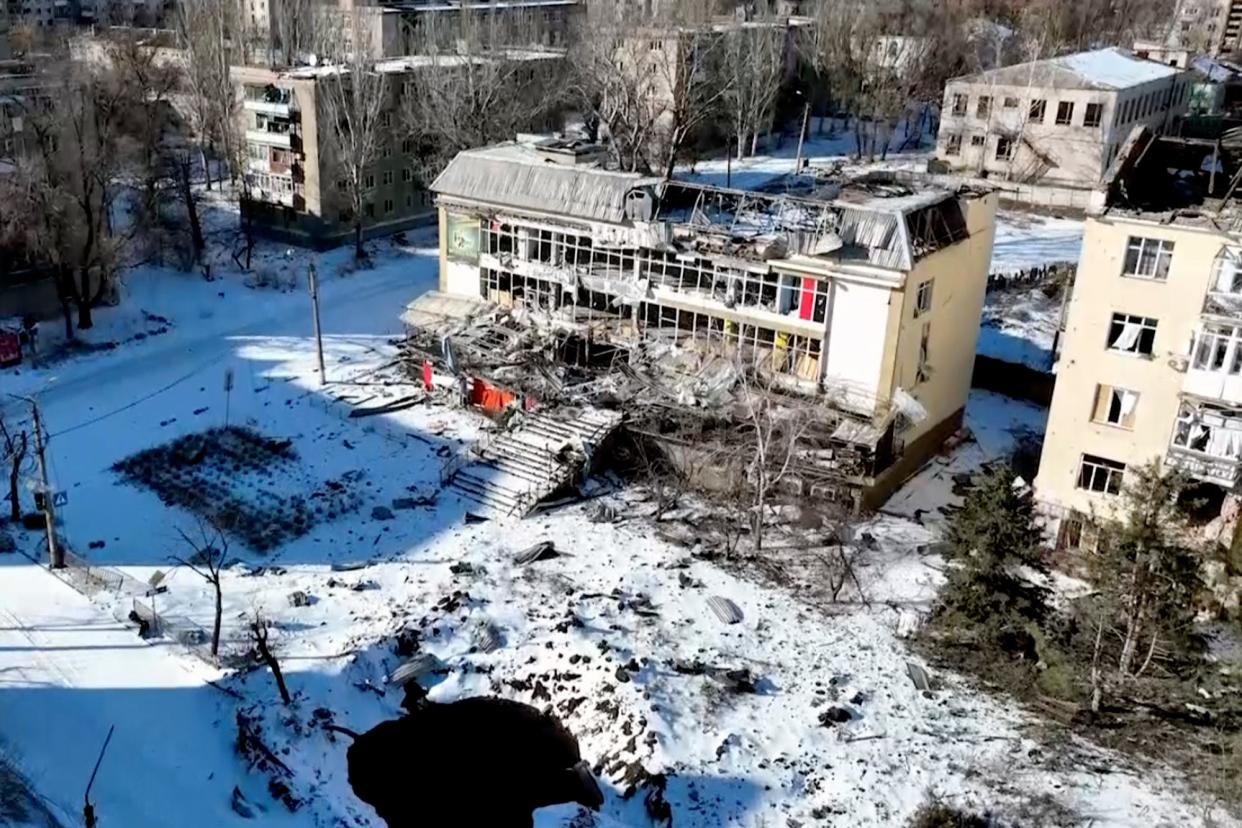Perspective and pragmatism, not passions and politics, matter in Ukraine talks | Guestview

America has no shortage of challenges that need the resources we have sent to Ukraine. When discussing Russia or Ukraine, perspective and pragmatism, not passions and politics, matter. Ukraine, like much of eastern Europe, is corrupt. Life under Russian domination is one of privation, despotism, and exploitation −just ask a Pole or Hungarian, read Khruschev’s diaries and his description of cannibalism in Ukraine during the Holodomor.
Does Ukraine merit $30 billion (about as much as Alabama’s 2019 budget) of U.S. aid since February 2022?
Does it matter that Ukraine produces 10% the world’s wheat exports and 16% of its corn exports? Does it matter that Ukrainian agriculture keeps millions of people in the Middle East and Africa from starving?
Since 1991, every U.S. president has supported Ukraine’s sovereignty. In fact, lethal aid to Ukraine began in 2018, when the Trump Administration provided Javelin missiles to Ukraine. President Trump recognized Ukraine’s value to American security and international stability.
In case you missed it: She's in Gulf Breeze. Her husband is stuck in Ukraine. Here's their plan to help both places.
And: Two Ukrainian students came to Pensacola for school. Now they're raising support for home
America supports Ukraine for three reasons.
First, supporting Ukraine helps keep the nuclear genie in the bottle.
Why do only nine countries (America, Russia, France, China, Great Britain, Pakistan, India, Israel, and North Korea) out the 195 states in the world possess nuclear weapons?
Few countries possess nuclear weapons because the Nuclear Non-Proliferation Treaty (NNPT) controls a signatory’s access to nuclear technology and materials. In 1994, the United States and Great Britain signed the Budapest Memorandum on Security Assurances, which commits us to uphold the territorial integrity of Ukraine, Belarus, and Kazakhstan. Our security guarantee helped convince Ukraine, Belarus, and Kazakhstan to sign the NNPT and relinquish the nuclear weapons they possessed when the Soviet Union collapsed.
Had Ukraine retained its nuclear capability, would history be different? If we waiver in Ukraine, will others conclude that nuclear weapons will protect you when America will not?
Second, American credibility, which shattered in Afghanistan, is at stake. Under President Trump, withdrawal of U.S. forces was contingent upon processes President Biden abandoned. Essential to U.S. efforts was the elimination of the Tehreek-e-Taliban-e-Pakistan (TTP) and the Islamic State. Since 2021, the TTP has strengthened and escalated its war against Pakistan’s fragile government. Suppose radical Islamists in the region topple Pakistan as they seized Afghanistan, could we deter them from using or proliferating Pakistan’s nuclear weapons?
Losing Afghanistan emboldened Russia to invade Ukraine. As Winston Churchill described, “there is nothing they (Russians) admire so much as strength, and there is nothing for which they have less respect than weakness, especially military weakness.” America failed to stop Putin in Georgia (2008) and Crimea (2014), so why spare Ukraine after watching America abandon Afghanistan?
If we waiver in Ukraine, should Taiwan, Japan, and South Korea believe in American security commitments? If we waiver in Ukraine, can we credibly deter Islamists in Pakistan and Afghanistan, ayatollahs in Iran, or Xi Jinping in China?
If we waiver in Ukraine, should Israel rely on President Nixon’s promise to always ensure Israel’s conventional superiority subject to Israel maintaining a policy of nuclear opacity? If you were an Israeli, would you trust America to support you in a war with Iran or Hezbollah?
Finally, American weapons in Ukrainian hands are punishing Russian brutality. In the years it takes Russia to rebuild its military power, Russia’s absence frees American resources to confront China’s challenge.
President Biden deserves credit in that he forswore any use of U.S. troops in Ukraine. Success requires certainty, limits, and clarity in what we will and will not do for Ukraine. Ukraine is not worth American lives, but it is worth engagement that reinforces world confidence that America keeps its word.
Edwin Howard is a native and resident of Escambia County, Florida. He is a 28-year veteran of the U.S. Navy and Navy Reserve specializing in intelligence, serving in Afghanistan, the Middle East and Liberia.
This article originally appeared on Pensacola News Journal: Ukraine funding discussion should be based on pragmatism | Guestview

